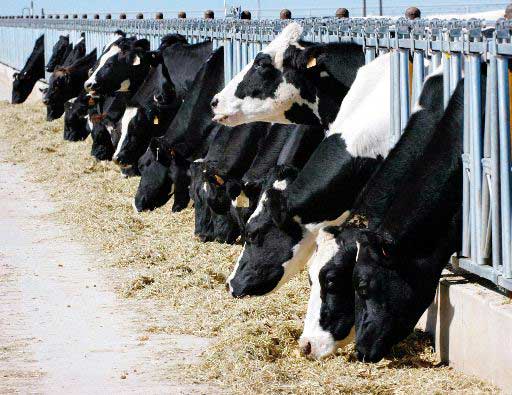By Jennifer M. Latzke – High Plains Journal
Experts say Kansas is poised to grow its dairy industry in the state, but it will take innovative thinking to attract and retain them.
Kansas State University had its annual Dairy Symposium Oct. 23 at the Stanley Stout Center on campus. Researchers, dairy experts, and producers discussed what hurdles there are to dairy expansion, attraction and retention in the state and what the future might hold for the Kansas dairy industry.
 The lead speaker, Normand St-Pierre, Ph.D., of The Ohio State University, discussed recent surveys that looked at the many varied factors that go into the relocation decision for small, medium and large dairies.
The lead speaker, Normand St-Pierre, Ph.D., of The Ohio State University, discussed recent surveys that looked at the many varied factors that go into the relocation decision for small, medium and large dairies.
While there are no one-size-fits-all answers to why a particular dairy relocates to one area over another, there are some commonalities. For example, the survey showed that cash flow was the top of the list, followed by capital expenditures and then tax structure and incentives.
St-Pierre said for those surveyed, property taxes were ranked more important than income taxes and economic incentives were of modest importance. Those are all factors communities looking to attract dairies should understand as they discuss ways to attract dairies.
Waste management and laws and regulations dealing with manure were fourth, followed by the cost and availability of utilities at fifth. St-Pierre said the survey showed that at the middle of the list were items such as water availability and quality; availability of land; regulatory environment of the state; and transportation of product.
While these were in the middle of the overall list, it’s important to note, St-Pierre said, that within the subcategories of each, there were items that were ranked more important than others. For example, within the regulatory environment category, the actual laws and their friendliness toward concentrated animal feeding operations as well as judicial attitudes toward agriculture in the state were of relatively high importance. The complexity of the regulations could be dealt with, St-Pierre said, as long as there was clarity in the process.